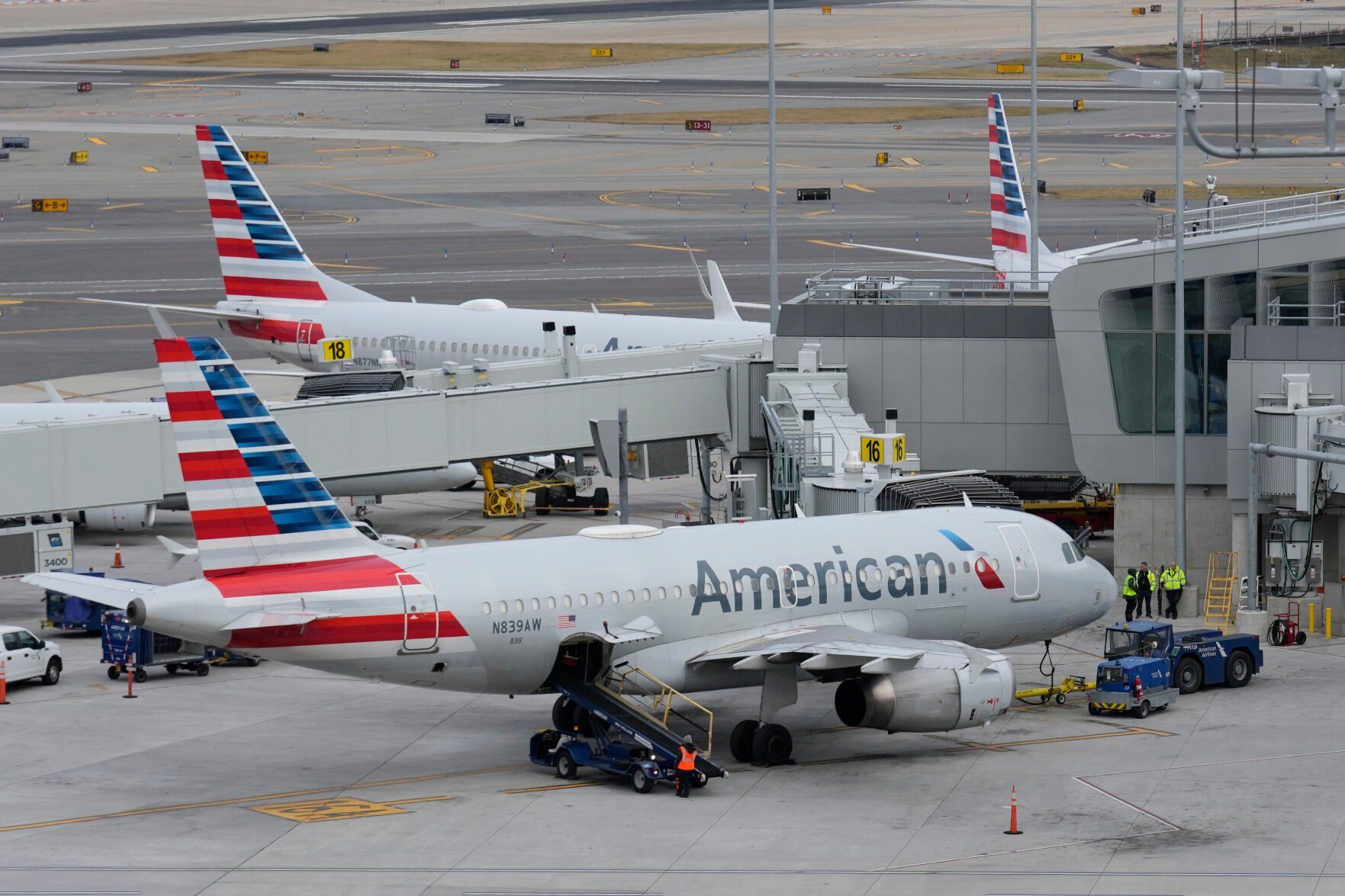DALLAS — American Airlines is raising the cost of checking bags and it is making other changes to push customers to buy tickets directly from the airline if they want to earn frequent-flyer points.
The airline said Tuesday that checking a bag on a domestic flight will rise from $30 now to $35 online and $40 if purchased at the airport. The fee for a second checked bag will rise from $40 to $45 both online and at the airport.
American last raised bag fees in 2018.
American, based in Fort Worth, Texas, introduced bag fees in 2008 — $15 back then — to cope with the rising cost of jet fuel. Since then, they have become a steady revenue source for most major U.S. carriers. American easily led the industry by raising $1.4 billion in bag fees in 2022, the last year for which U.S. Transportation Department figures are available.
The airline is also raising bag fees by $5 for short international flights including those to Canada, Mexico and the Caribbean — now $35 for the first bag and $45 for the second.
The airline will generally allow customers to check at least one bag free if they hold elite status in American’s loyalty program, buy a premium-class ticket or use an American-branded credit card.
American will give a break to customers whose bags are slightly overweight or oversized. Instead of being hit with the full extra fee — ranging from $100 to $650 — graduated fees will start at $30 for bags that are no more than 3 pounds (1.36 kg) or three linear inches over the limits.
And it is cutting the cost of transferring points between frequent-flyer accounts.
At the same time, American announced that starting with tickets issued on May 1, customers will have to buy tickets directly from the airline or its partner carriers or from preferred online travel agencies if they want to earn points in its AAdvantage loyalty program. The airline said it will list the preferred travel agencies in late April. Corporate travelers won’t be affected.
About 60% of American’s ticket sales are already made directly through the airline, said Scott Chandler, vice president of revenue management.
The changes are part of a long shift by airlines away from using travel agents — and paying them commissions — and bringing ticket sales in-house.
“The old way of booking a ticket relied on agents having a ton of experience and understanding product attributes,” Chandler said in an interview. “The old technology doesn’t let us explain things very well, and it is a little more confusing for customers when we introduce new products.”
Chandler likened it to the way that Amazon.com explains features that it sells on the site.


